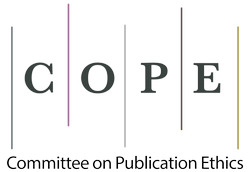TARIX FANINI O‘QITISHDA ZAMONAVIY METODLARNING O‘RNI
Abstrak
Ushbu maqolada tarixni o'qitishning zamonaviy usullari evolyutsiyasi o'rganiladi. O‘quvchilarni qiziqtirish va ularning tarixiy voqealar haqidagi tushunchalarini oshirish uchun innovatsion yondashuvlardan foydalanishga e’tibor qaratgan holda, ushbu maqola tarixni o‘qitishda texnologiya, so‘rovga asoslangan ta’lim va loyiha asosida o‘qitish usullarini ko‘rib chiqadi. Texnologiyalardan foydalanish tarixni o‘qitish uslubini tubdan o‘zgartirdi, o‘qituvchilar fanni yanada qiziqarli va interaktiv qilish uchun keng ko‘lamli raqamli vositalardan foydalanishdi. Videolar, podkastlar va interfaol xaritalar kabi multimedia resurslari murakkab tarixiy g‘oyalar va tushunchalarni yanada qiziqarli va qulayroq tarzda taqdim etishni osonlashtirdi. So‘rovga asoslangan ta’lim o‘quvchilarga savollar berish va ularga javob izlash orqali o‘z bilimlarini faollashtirish imkonini berdi. Birlamchi va ikkilamchi manbalardan foydalangan holda, talabalar tadqiqot qobiliyatlarini rivojlantiradilar va turli xil ma'lumotlar manbalarini tanqidiy baholashni o'rganadilar. Loyiha asosida o‘qitish tarixni o‘qitishda ham samarali ekanligini isbotladi, chunki bu o‘quvchilarga tarixiy bilimlarni real vaziyatlarda qo‘llashni talab qiladigan loyihalar ustida hamkorlikda ishlash imkonini beradi. Bunday yondashuv ijodkorlik, jamoada ishlash va muammolarni hal qilish ko‘nikmalarini rivojlantiradi hamda o‘quvchilarda tarixiy voqealarni zamonaviy masalalarda qo‘llash orqali ularni chuqurroq anglash imkonini beradi. Biroq tarixni o‘qitishning an’anaviy usullari hali ham sinfda o‘z o‘rnini egallab kelmoqda va ularni zamonaviy yondashuvlar bilan to‘liq almashtirib bo‘lmaydi. Talabalarga tarixiy bilim va tushunchalarning mustahkam poydevorini berishda ma’ruzalar, o‘qishlar va muhokamalar hali ham muhim ahamiyatga ega. Bundan tashqari, an'anaviy usullar zamonaviy yondashuvlar bilan birlashtirilib, talabalar uchun yanada kengroq va samarali o'rganish tajribasini yaratish mumkin
Yuklashlar
##submission.citations##
Anderson, L. W., & Krathwohl, D. R. (2001). A taxonomy for learning, teaching, and assessing: A revision of Bloom's taxonomy of educational objectives. Allyn & Bacon.
Banks, J. A. (2015). Teaching strategies for ethnic studies. Teachers College Press.
Barton, K. C., & Levstik, L. S. (Eds.). (2013). Teaching history for the common good. Routledge.
Berliner, D. C. (1987). Ways of thinking about students and classrooms. Phi Delta Kappan, 68(9), 682-686.
Bransford, J. D., Brown, A. L., & Cocking, R. R. (Eds.). (2000). How people learn: Brain, mind, experience, and school. National Academy Press.
Cavanaugh, C., & Clark, T. (2007). The landscape of K-12 online learning. In Handbook of distance education (pp. 115-130). Routledge.
Chandler, T. (2014). Education and the culture of democracy: Early childhood to secondary. Routledge.
Cooper, H., Robinson, J. C., & Patall, E. A. (2006). Does homework improve academic achievement? A synthesis of research, 1987-2003. Review of educational research, 76(1), 1-62.
Dede, C. (2010). Comparing frameworks for 21st century skills. In Assessment and teaching of 21st century skills (pp. 51-76). Springer Netherlands.
Dewey, J. (1938). Experience and education. Simon and Schuster.
Gardner, H. (1993). Multiple intelligences: The theory in practice. Basic Books.
Hattie, J. (2009). Visible learning: A synthesis of over 800 meta-analyses relating to achievement. Routledge.
Hmelo-Silver, C. E. (2004). Problem-based learning: What and how do students learn? Educational psychology review, 16(3), 235-266.
Kirschner, P. A., Sweller, J., & Clark, R. E. (2006). Why minimal guidance during instruction does not work: An analysis of the failure of constructivist, discovery, problem-based, experiential, and inquiry-based teaching. Educational psychologist, 41(2), 75-86.
Lee, J., Kim, S., & Lee, J. (2011). Exploring factors affecting high school students’ motivation in history learning: A qualitative approach. Journal of Curriculum and Teaching, 2(1), 1-15.
Mergendoller, J. R., Maxwell, N. L., & Bellisimo, Y. (2006). The effectiveness of problem-based instruction: A comparative study of instructional methods and student characteristics. Interdisciplinary Journal of Problem-based Learning, 1(2), 49-69.
National Council for the Social Studies. (2010). National curriculum standards for social studies: A framework for teaching, learning, and assessment. National Council for the Social Studies.
NE’MATOV, OZODBEK., ZARINA, R., & MAFTUNA, K. HISTORICAL PLACES OF THE FARISH DISTRICT.
##submission.downloads##
Nashr qilingan
Nashr
Bo'lim
##submission.license##
##submission.copyrightStatement##
##submission.license.cc.by-nc-nd4.footer##

















